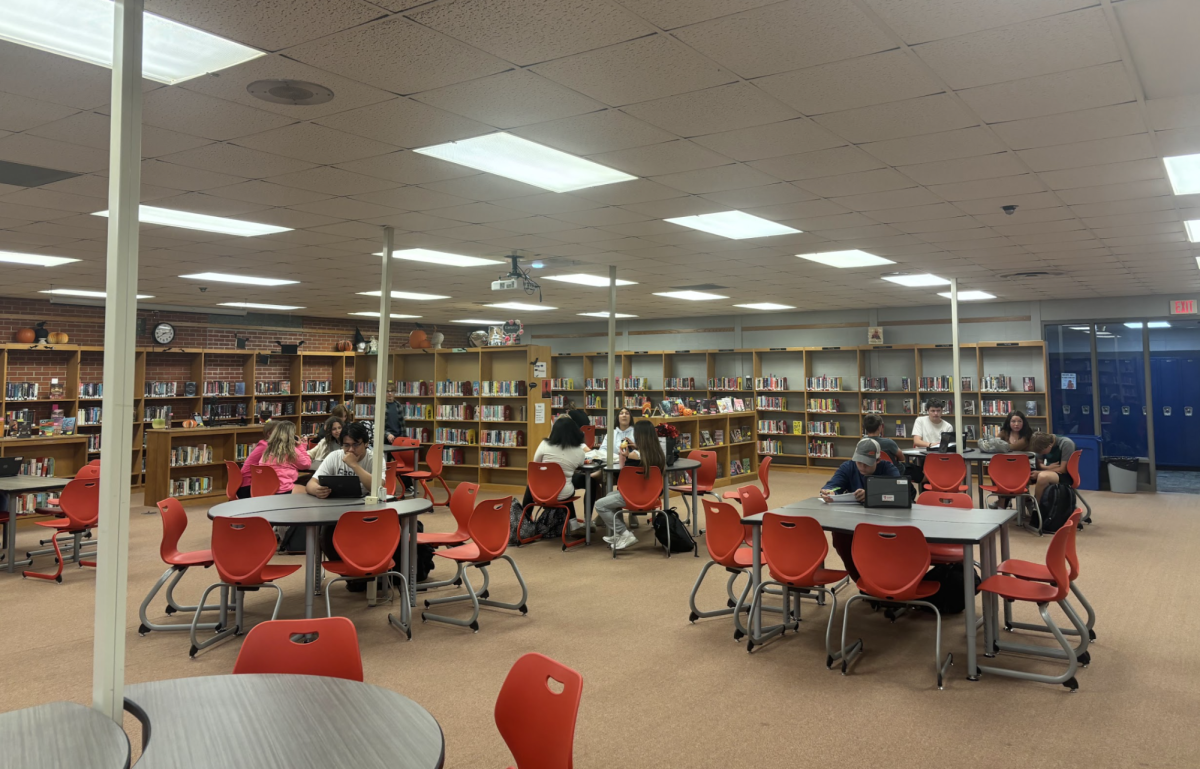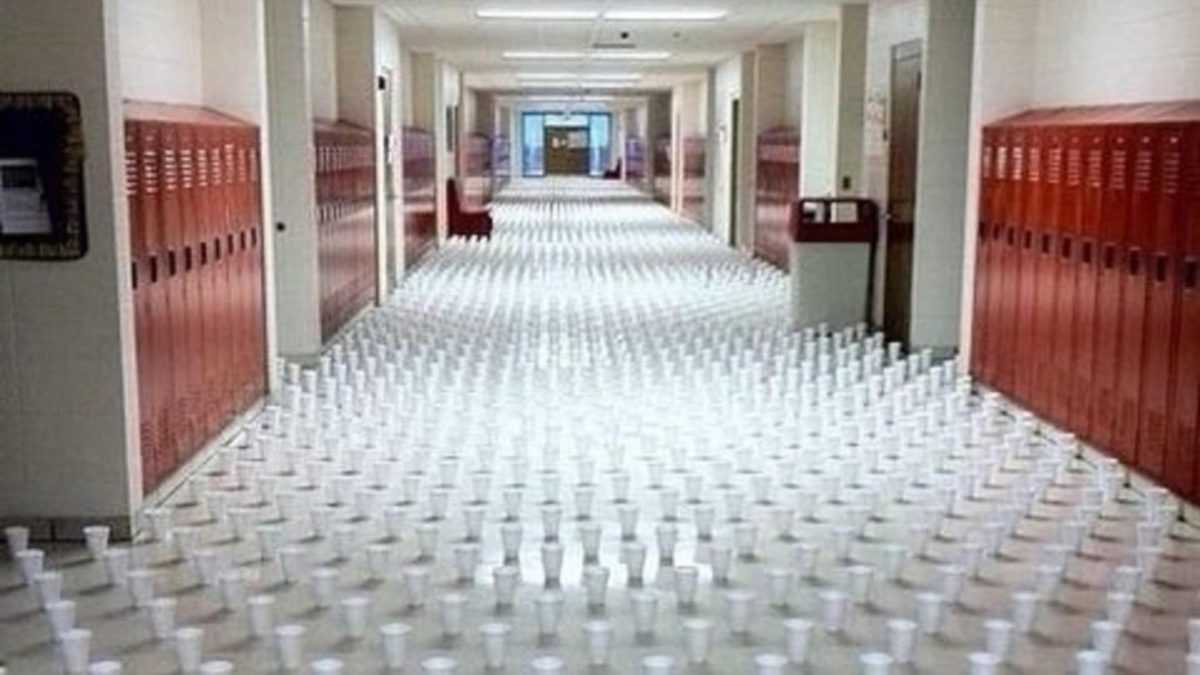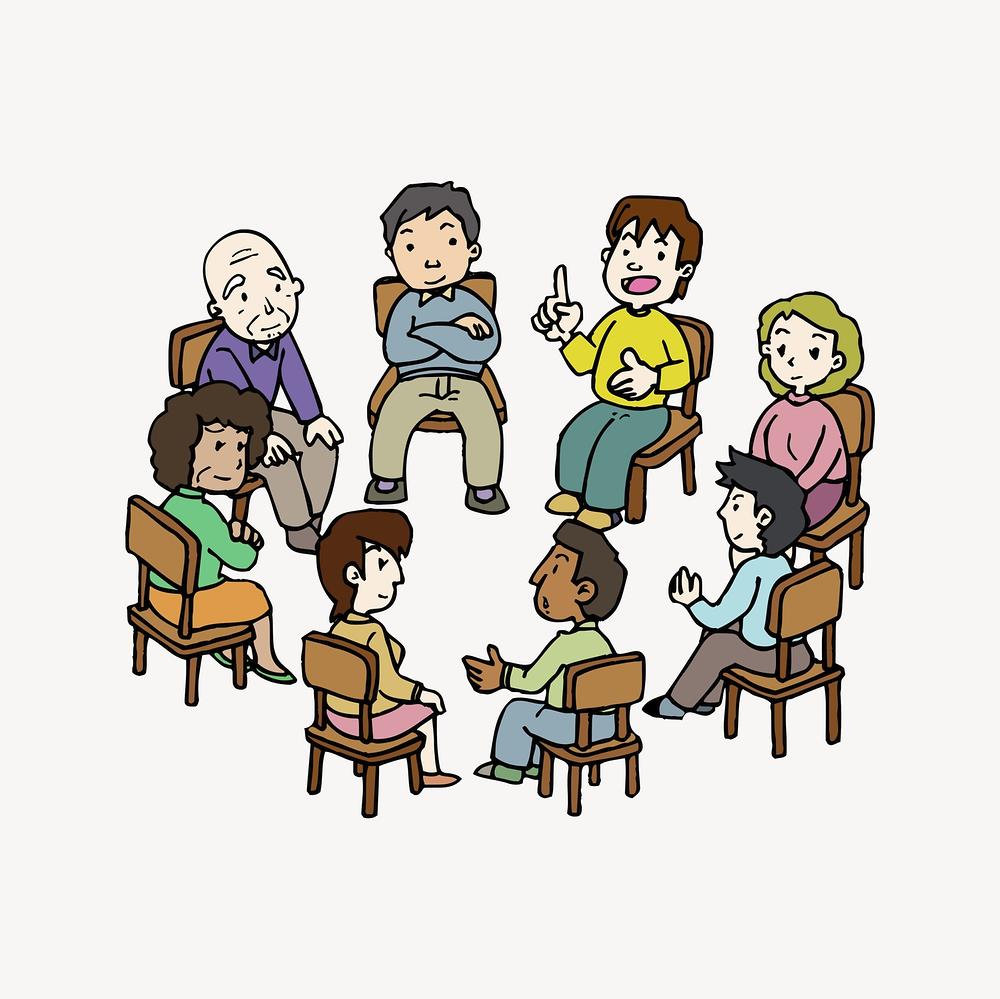Starting this school year, the high school has implemented a new system to their education methods: mandatory study hall. This requires that any students failing two or more classes stay in the library during M-block in order to receive extra help with classes. The new system has been met with mixed opinions from students and teachers, with some wondering why it was implemented at all and others wondering why it wasn’t done sooner.
The mandatory study hall is held in the library on Tuesdays and Thursdays from 2:30-3:00, using up a student’s entire M block time. While most students are let go at 2:30, anyone who has more than one F in the gradebook is required to stay in school until the last bell rings. This uses up quite a bit of time for them. Thirty minutes may not seem like much, but to a teenager with limited time left of their childhood, thirty minutes is quite a lot of time, especially for those who work a part-time job after school. “It interferes with work and could make people late,” said Willow Smith, sophomore. The system is taking time out of students’ days, and even if it is put in place to help them, isn’t that something that should be taken care of during class time as opposed to being forced to stay longer?
Most students would be reluctant to stay in school any longer than they have to, but some more than others. When looking at whether this was a good idea or not, there’s always going to be a question of why the student is failing. Did they miss a few days? Did they not understand a topic and did poorly on a test? Are they just not trying? The study hall is a wonderful idea for a struggling student who wants to do better, but does that describe the entire student body? What would be done with a student who doesn’t want to do better? “In a way, to receive help, you need to want it,” said Mitchell Hewitt, chemistry teacher. He may be correct, but he hopes that this initiative will show the student body that the faculty wants to help them.
On the other hand, this could be exactly what the school needed to improve grades. The study hall also applies to those who were scored as deficient in last year’s ISASPs, largely due to the fear that students are simply skipping over the questions to be done with it instead of trying to get a good score. If the ISASP scores improve from last year, it’s safe to say that the study hall is here to stay. But there’s only one way to find out, and as Hewitt said, “We won’t know until we have more data.” The study hall is still a very new addition to the school, so ruling it one way or another in its current stage may be a little hasty.
The mandatory study hall is a new system implemented by the school. Good or bad, it may be too early to say for some. Others have already made up their mind. Either way, nothing can be said for sure until all of the facts are in.















